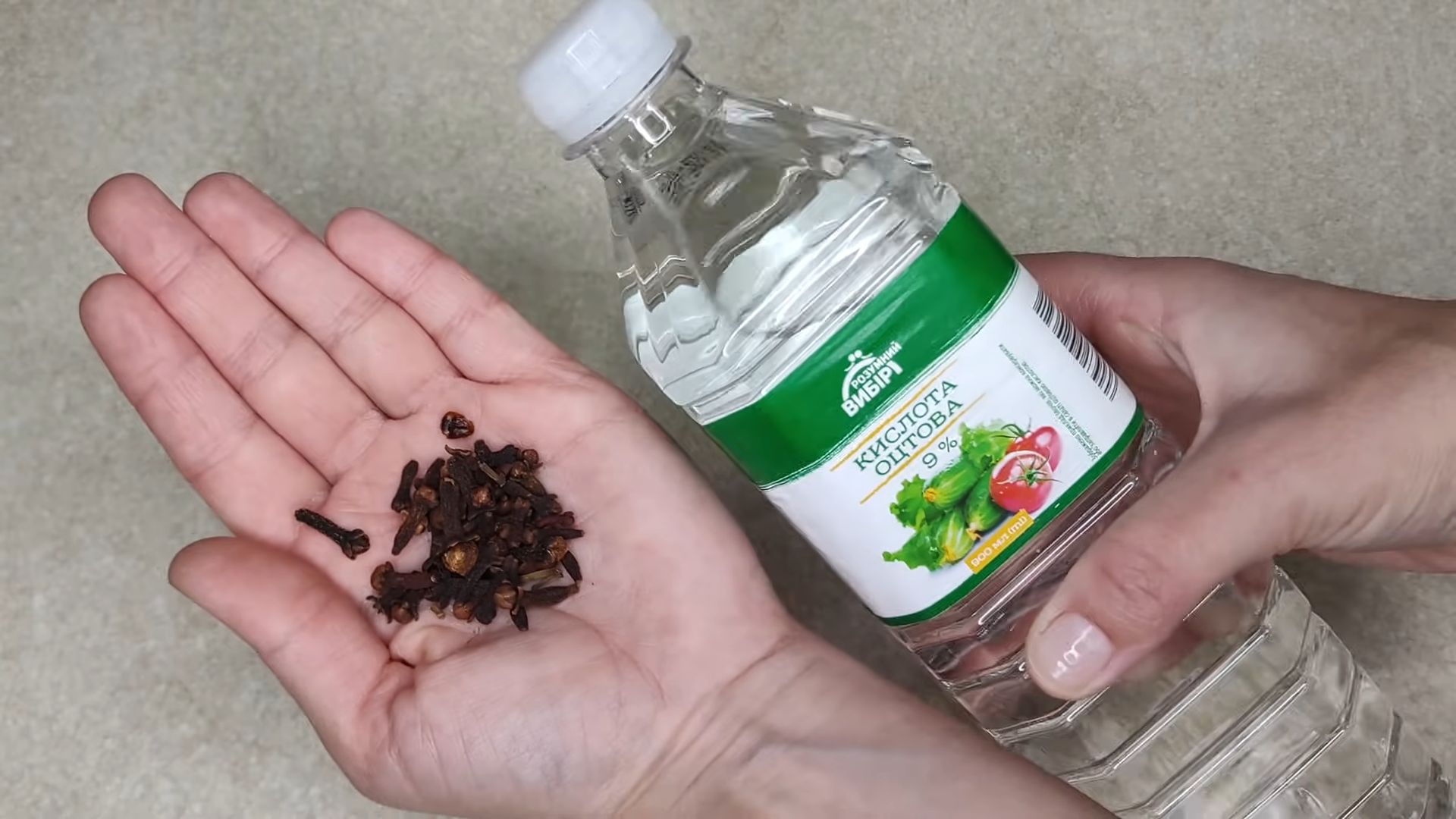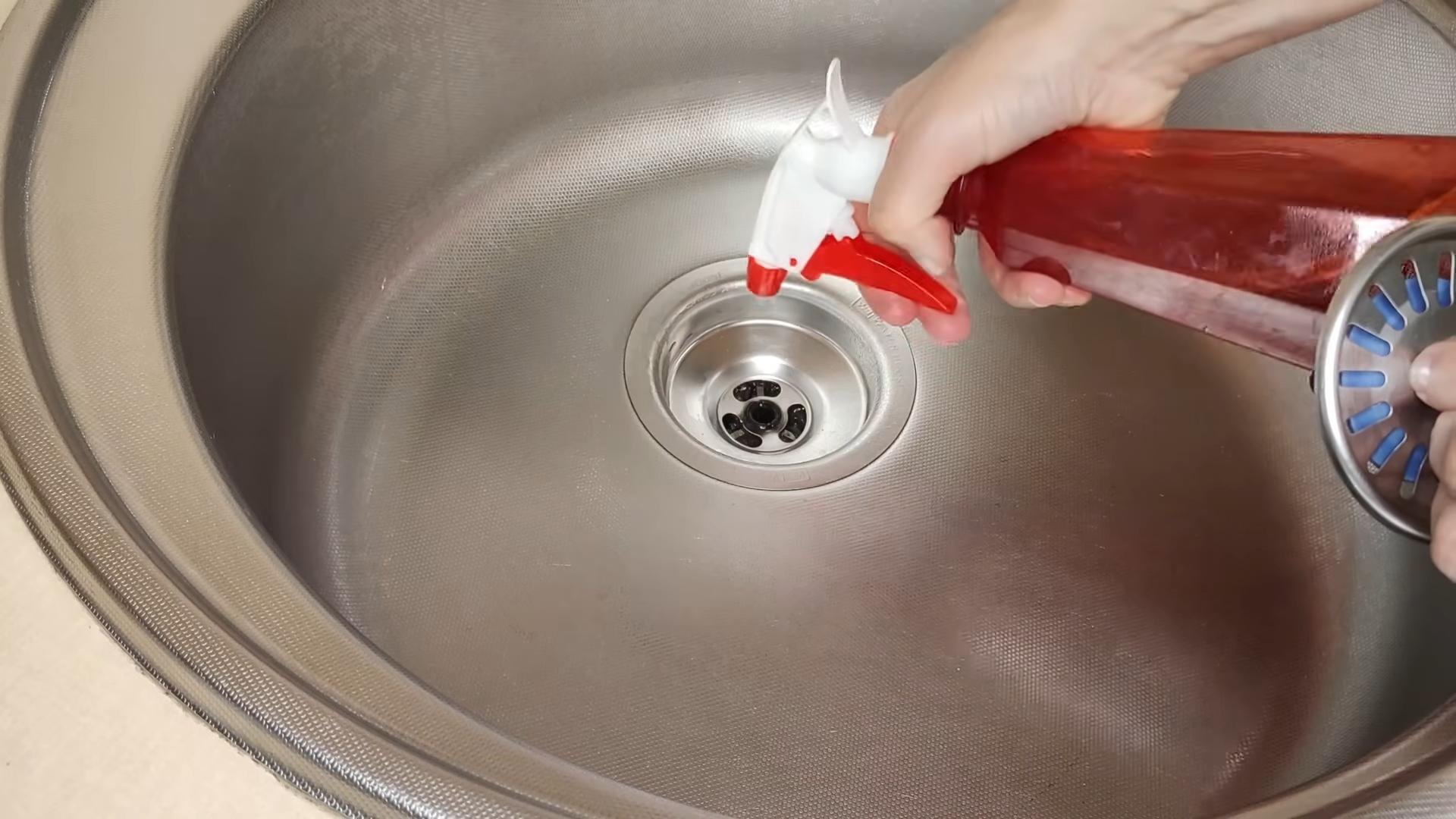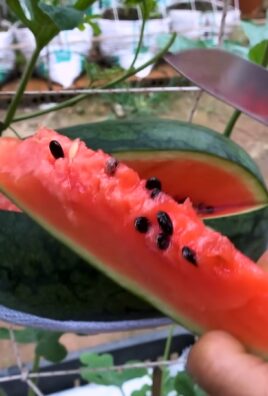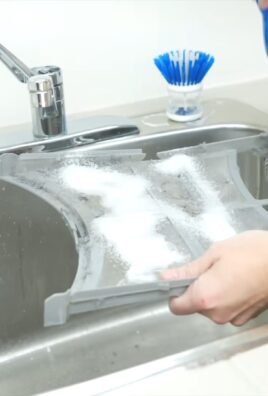Clove infused vinegar uses are more versatile than you might think! Have you ever wondered how to naturally boost your cleaning power while adding a warm, inviting scent to your home? Or perhaps you’re searching for a chemical-free way to deter pests in your garden? Well, you’re in the right place! For centuries, cloves have been prized for their potent medicinal and aromatic properties, dating back to ancient spice routes where they were traded as valuable commodities. Now, we’re bringing that ancient wisdom into the modern home with a simple DIY project that will revolutionize your cleaning and gardening routines.
I’m excited to share this easy-to-follow guide on creating your own clove infused vinegar. Many of us are becoming increasingly aware of the harsh chemicals in commercial cleaning products and the potential harm they pose to our health and the environment. This DIY trick offers a fantastic alternative, allowing you to harness the natural power of cloves and vinegar for a safer, more sustainable home. Plus, the delightful aroma of cloves will leave your home smelling fresh and inviting! So, let’s dive in and discover the amazing clove infused vinegar uses that await!

DIY Clove-Infused Vinegar: A Natural Cleaning & Aromatherapy Powerhouse
Hey there, fellow DIY enthusiasts! Today, I’m super excited to share one of my favorite natural cleaning and aromatherapy hacks: clove-infused vinegar. It’s incredibly easy to make, smells amazing (especially if you love that warm, spicy scent of cloves!), and is a fantastic alternative to harsh chemical cleaners. Plus, it’s incredibly versatile! I use it for everything from cleaning my kitchen counters to freshening up my laundry. Let’s dive in!
What You’ll Need
Before we get started, let’s gather our supplies. This is a pretty simple project, so you probably already have most of these items on hand.
* White Distilled Vinegar: This is the base of our infusion. Make sure it’s plain white vinegar, not apple cider vinegar or any other type.
* Whole Cloves: These are the stars of the show! You can find them in the spice aisle of your local grocery store. I recommend using whole cloves for the best flavor and aroma.
* A Glass Jar with a Lid: A mason jar or any clean glass jar with a tight-fitting lid will work perfectly. The size will depend on how much clove-infused vinegar you want to make.
* A Fine-Mesh Strainer or Cheesecloth: This will be used to strain the cloves from the vinegar after the infusion process.
* A Funnel (Optional): A funnel can make pouring the vinegar into the jar and back out again much easier, but it’s not essential.
* Spray Bottle(s): To store and use your clove-infused vinegar for cleaning.
Step-by-Step Instructions: Infusing the Vinegar
Okay, let’s get to the fun part! Here’s how to make your own clove-infused vinegar:
1. Prepare Your Jar: Make sure your glass jar is clean and completely dry. Any moisture can dilute the vinegar and potentially affect the infusion process. I usually wash mine with hot, soapy water and then let it air dry completely.
2. Add the Cloves: Now, it’s time to add the cloves to the jar. A good rule of thumb is to use about 1/4 cup of whole cloves per 2 cups of vinegar. You can adjust this ratio to your liking, depending on how strong you want the clove scent to be. I personally like a pretty strong clove aroma, so I sometimes add a little extra.
3. Pour in the Vinegar: Carefully pour the white distilled vinegar into the jar, making sure to completely cover the cloves. Leave about an inch of headspace at the top of the jar.
4. Seal the Jar: Secure the lid tightly on the jar. This will prevent any air from getting in and affecting the infusion process.
5. Infuse: Now comes the waiting game! Place the jar in a cool, dark place, like a pantry or cupboard. Let the vinegar infuse for at least 2-3 weeks. The longer it infuses, the stronger the clove flavor and aroma will be. I usually let mine infuse for a full month for maximum potency. Give the jar a gentle shake every few days to help distribute the cloves and encourage the infusion process.
6. Strain the Vinegar: After the infusion period, it’s time to strain the vinegar. Place a fine-mesh strainer or several layers of cheesecloth over a clean bowl or jar. Carefully pour the clove-infused vinegar through the strainer, catching the cloves.
7. Discard the Cloves: You can discard the used cloves. They’ve already given up most of their flavor and aroma.
8. Store Your Clove-Infused Vinegar: Pour the strained clove-infused vinegar into a clean spray bottle or jar. Label it clearly so you know what it is! Store it in a cool, dark place. It should last for several months.
Using Your Clove-Infused Vinegar
Now that you have your homemade clove-infused vinegar, let’s talk about how to use it! This is where the real fun begins.
* All-Purpose Cleaner: Dilute the clove-infused vinegar with water in a spray bottle (usually a 1:1 ratio works well). Use it to clean kitchen counters, bathroom surfaces, and other areas around your home. The vinegar will disinfect and deodorize, while the cloves will leave a pleasant, spicy scent. Always test on an inconspicuous area first, especially on delicate surfaces like marble or granite.
* Laundry Freshener: Add about 1/2 cup of clove-infused vinegar to your washing machine during the rinse cycle. It will help to soften your clothes, remove odors, and leave them smelling fresh and clean.
* Air Freshener: Pour some clove-infused vinegar into a spray bottle and spritz it around your home to freshen the air. The clove scent is especially nice during the fall and winter months.
* Window and Glass Cleaner: Mix equal parts clove-infused vinegar and water in a spray bottle. Use it to clean windows, mirrors, and other glass surfaces. It will leave them sparkling clean and streak-free.
* Drain Cleaner: Pour about 1/2 cup of baking soda down your drain, followed by 1 cup of clove-infused vinegar. Let it fizz for about 30 minutes, then flush with hot water. This will help to unclog your drain and eliminate odors.
* Aromatherapy: Simmer a small amount of clove-infused vinegar on the stovetop to create a warm, inviting aroma in your home. Be sure to keep an eye on it and add water as needed to prevent it from burning.
* Bug Repellent: While not as potent as dedicated insecticides, the scent of cloves can help deter some insects. Try spraying a diluted solution around doorways and windows.
Tips and Tricks for the Best Clove-Infused Vinegar
Here are a few extra tips to help you make the best clove-infused vinegar possible:
* Use High-Quality Cloves: The better the quality of your cloves, the stronger and more flavorful your infused vinegar will be. Look for whole cloves that are plump and fragrant.
* Experiment with Other Spices: Feel free to add other spices to your infusion, such as cinnamon sticks, orange peels, or star anise. This will create a unique and complex aroma.
* Adjust the Infusion Time: The longer you let the vinegar infuse, the stronger the clove flavor will be. Experiment with different infusion times to find what works best for you.
* Dilute as Needed: Clove-infused vinegar can be quite strong, so you may need to dilute it with water before using it for cleaning or other purposes. Start with a 1:1 ratio and adjust as needed.
* Be Careful on Certain Surfaces: While vinegar is generally safe for most surfaces, it can damage some materials, such as marble, granite, and wood. Always test on an inconspicuous area first before using it on a larger surface.
* Don’t Mix with Bleach: Never mix vinegar with bleach, as this can create toxic fumes.
* Consider the Scent: While I love the smell of cloves, it’s not for everyone. If you’re not a fan of the scent, you might want to try infusing vinegar with other herbs or spices, such as lavender or lemon peels.
* Reuse Your Jars: This is a great way to upcycle old jars and reduce waste. Just make sure they’re clean and dry before using them.
* Make a Big Batch: Once you get the hang of it, you can easily make a big batch of clove-infused vinegar to have on hand for all your cleaning and aromatherapy needs.
* Label Everything: This is especially important if you have multiple DIY cleaning products. Clearly label your clove-infused vinegar so you don’t accidentally mix it up with something else.
I hope you enjoyed this DIY tutorial! Clove-infused vinegar is a simple, natural, and effective way to clean and freshen your home. Give it a try and let me know what you think! Happy crafting!

Conclusion
So, there you have it! Transforming ordinary vinegar into a potent, aromatic, and incredibly useful clove infused vinegar is not just a fun kitchen project; it’s a game-changer for cleaning, cooking, and even wellness. We’ve walked you through the simple steps, highlighting the versatility and cost-effectiveness of this DIY marvel. But why is this a must-try?
Firstly, consider the sheer power of cloves. Beyond their delightful fragrance, cloves boast impressive antimicrobial, antifungal, and antiseptic properties. Infusing these properties into vinegar creates a cleaning solution that’s not only effective but also naturally fragrant, leaving your home smelling warm and inviting instead of chemically sterile. Imagine cleaning your kitchen counters with a solution that smells like the holidays!
Secondly, think about the culinary possibilities. A splash of clove infused vinegar can add a unique depth of flavor to marinades, sauces, and even pickles. It’s a subtle, warming spice that elevates your dishes without overpowering them. Experiment with using it in salad dressings for a surprising twist or drizzling it over roasted vegetables for an extra layer of complexity.
Thirdly, and perhaps most importantly, this DIY project empowers you to take control of the ingredients you use in your home. You know exactly what’s going into your cleaning solutions and your food, avoiding harsh chemicals and artificial additives. In a world increasingly concerned with sustainability and natural living, clove infused vinegar is a small but significant step towards a healthier and more conscious lifestyle.
Variations and Suggestions:
Don’t be afraid to experiment! The beauty of DIY is the freedom to customize. Here are a few ideas to get you started:
* **Spice it up:** Add a cinnamon stick or a few star anise pods to the vinegar along with the cloves for an even more complex aroma and flavor profile.
* **Citrus Zest:** Include the zest of an orange or lemon for a brighter, more refreshing scent, especially if you plan to use the vinegar for cleaning.
* **Herbal Infusion:** Combine cloves with herbs like rosemary or thyme for a savory twist, perfect for culinary applications.
* **Strength Adjustment:** Adjust the number of cloves to control the intensity of the infusion. Start with the recommended amount and increase it if you prefer a stronger clove flavor or aroma.
* **Vinegar Type:** While white vinegar is the most common choice for cleaning, apple cider vinegar can be used for culinary purposes, adding a slightly sweeter and fruitier note.
Beyond the Basics:
Consider using your clove infused vinegar for:
* **Cleaning:** Disinfecting kitchen surfaces, cleaning bathroom tiles, and deodorizing garbage disposals.
* **Cooking:** Marinades for meats and vegetables, salad dressings, and pickling solutions.
* **Wellness:** Diluted as a gargle for sore throats (consult with a healthcare professional first), or as a foot soak to combat fungal infections.
* **Gardening:** Diluted as a natural pest repellent for plants.
We wholeheartedly encourage you to try this simple yet transformative DIY trick. It’s easy, affordable, and incredibly rewarding. Once you experience the benefits of clove infused vinegar, you’ll wonder how you ever lived without it!
Now, it’s your turn! Grab a bottle of vinegar, some cloves, and get creative. We’re confident that you’ll love the results. And most importantly, don’t forget to share your experiences with us! Tell us how you’re using your clove infused vinegar, what variations you’ve tried, and any tips or tricks you’ve discovered along the way. Your feedback will not only inspire others but also help us refine and improve this guide. Let’s build a community of DIY enthusiasts who are passionate about natural living and sustainable practices. So, go ahead, infuse your world with the power of cloves!
Frequently Asked Questions (FAQ)
What type of vinegar is best for clove infusion?
For cleaning purposes, distilled white vinegar is generally recommended due to its high acidity and neutral scent, which allows the clove aroma to shine through. For culinary applications, apple cider vinegar can be used, adding a slightly sweeter and fruitier note to the infusion. Avoid using balsamic vinegar or other flavored vinegars, as they will clash with the clove flavor.
How long does it take for the vinegar to be properly infused?
The infusion process typically takes about 2-3 weeks. While you can start using the vinegar after a week, the flavor and aroma will continue to develop and intensify over time. For the best results, allow the cloves to steep for the full 2-3 weeks.
How do I store clove infused vinegar?
Store the infused vinegar in a cool, dark place, away from direct sunlight and heat. A pantry or cupboard is ideal. The vinegar should be stored in an airtight container to prevent evaporation and maintain its potency. Properly stored, clove infused vinegar can last for several months.
Can I reuse the cloves after infusing the vinegar?
While the cloves will have released much of their flavor and aroma into the vinegar, they can still be reused. You can add them to potpourri, use them to infuse oil, or even grind them up and add them to spice blends. However, keep in mind that they will be less potent than fresh cloves.
Is clove infused vinegar safe to use on all surfaces?
While clove infused vinegar is generally safe for most surfaces, it’s always a good idea to test it on a small, inconspicuous area first, especially on delicate materials like marble or granite. Avoid using it on waxed or oiled wood surfaces, as the acidity of the vinegar can damage the finish.
Can I use clove infused vinegar to clean my skin?
While cloves have some beneficial properties for the skin, using clove infused vinegar directly on your skin is not recommended. The acidity of the vinegar can be irritating and cause dryness or even burns. If you’re interested in using cloves for skincare, consider using clove essential oil diluted in a carrier oil instead. Always consult with a dermatologist before using any new ingredients on your skin.
Can I drink clove infused vinegar?
While some people consume small amounts of diluted apple cider vinegar for its potential health benefits, drinking clove infused vinegar is not generally recommended. The high acidity of the vinegar can irritate the esophagus and stomach lining. If you’re interested in the potential health benefits of cloves, consider adding them to your diet in other ways, such as using them in cooking or drinking clove tea.
How do I dilute clove infused vinegar for cleaning?
The dilution ratio will depend on the specific cleaning task. For general cleaning, a 1:1 ratio of clove infused vinegar to water is usually sufficient. For tougher stains or disinfecting, you can use a stronger concentration, such as 2 parts vinegar to 1 part water. Always test the solution on a small, inconspicuous area first to ensure it doesn’t damage the surface.
Can I use clove infused vinegar to get rid of fruit flies?
Yes, clove infused vinegar can be an effective natural remedy for fruit flies. Simply pour some of the vinegar into a small bowl or jar and cover it with plastic wrap. Poke a few small holes in the plastic wrap to allow the fruit flies to enter. The sweet aroma of the vinegar will attract the fruit flies, and they will become trapped inside the container.
What are the potential benefits of using clove infused vinegar?
The potential benefits of using clove infused vinegar include:
* **Natural Cleaning:** It’s a natural and effective cleaning solution that avoids harsh chemicals.
* **Antimicrobial Properties:** Cloves have antimicrobial properties that can help to disinfect surfaces.
* **Pleasant Aroma:** It leaves a pleasant, natural clove scent instead of a chemical odor.
* **Culinary Uses:** It can add a unique flavor to marinades, sauces, and other dishes.
* **Cost-Effective:** It’s a cost-effective alternative to commercial cleaning products and flavorings.
* **DIY Satisfaction:** It provides the satisfaction of creating your own natural products.
How do I know if my clove infused vinegar has gone bad?
Clove infused vinegar is very shelf stable due to the acidity of the vinegar. However, if you notice any of the following signs, it’s best to discard it:
* **Cloudiness or Sediment:** While some sediment is normal, excessive cloudiness or the presence of mold indicates spoilage.
* **Foul Odor:** A sour or unpleasant odor that is different from the typical clove aroma.
* **Discoloration:** A significant change in color that is not due to the cloves.
By following these guidelines and experimenting with different variations, you can unlock the full potential of clove infused vinegar and enjoy its many benefits. Remember to share your experiences and inspire others to embrace the power of DIY!




Leave a Comment